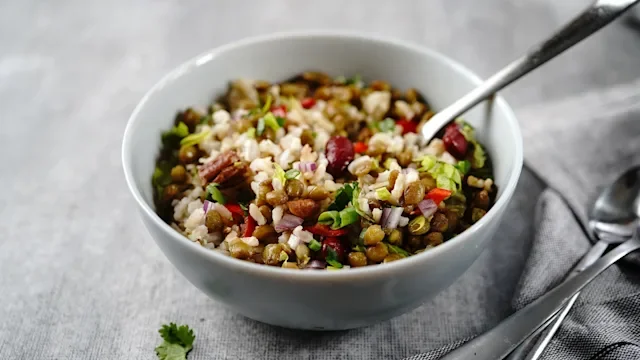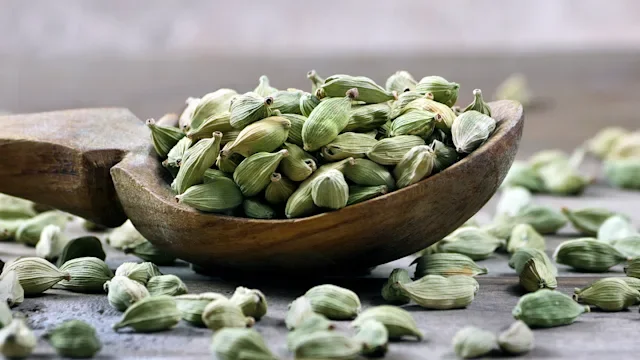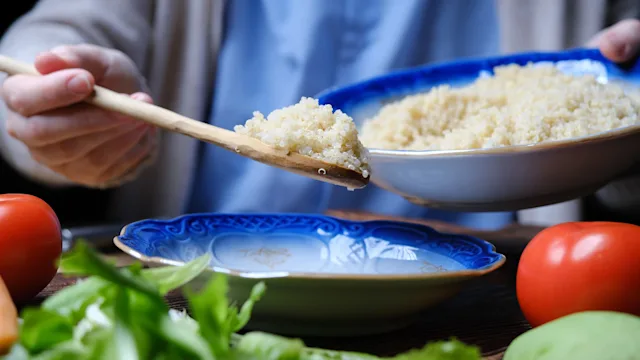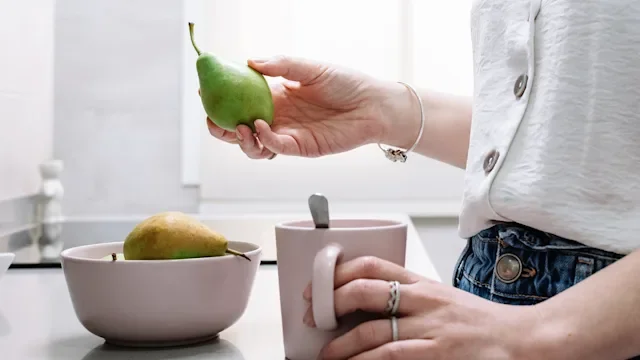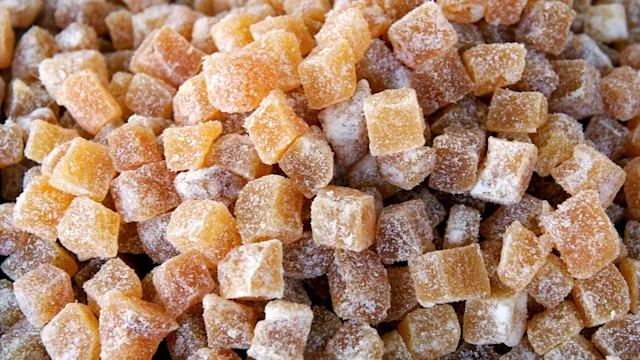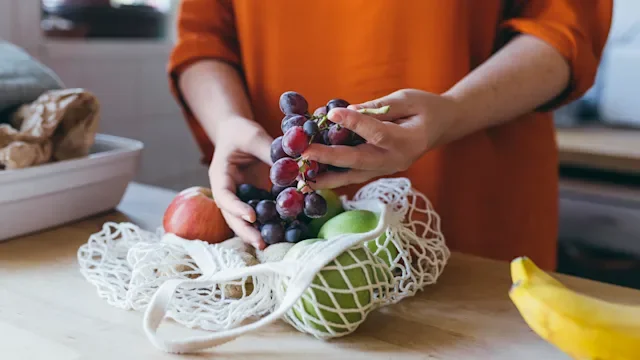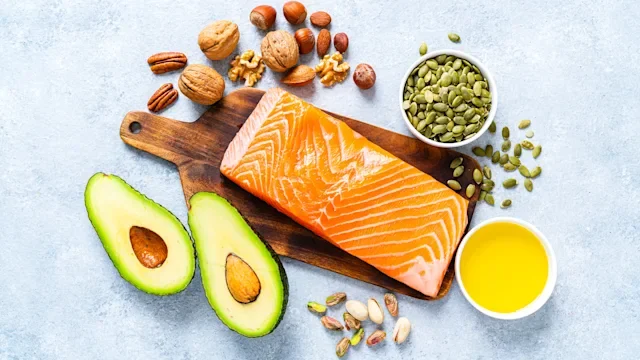Key takeaways:
Staying well-hydrated may help relieve joint pain if you have arthritis.
Drinks like green tea, golden milk, and certain smoothies contain compounds that can help reduce inflammation and improve joint health.
Limit or avoid caffeine and alcohol. They can make arthritis pain worse.
Joint pain from arthritis can make everyday activities a challenge. If you’re struggling with arthritis, there are things you can do for pain relief. Examples include strengthening muscles around the joint and losing weight. These lifestyle changes can lead to better joint function over time.
You can also use your diet to help target inflammation in arthritis. Here are the five best drinks for arthritis.
1. Water
Getting enough water is important for your overall health. And there’s some evidence that staying hydrated can help maintain joint health.
Many joints are lined with synovial fluid. This is a thick liquid that helps lubricate the joints and protect them from damage. Staying hydrated helps your body make enough synovial fluid to protect your joints.
Also, dehydration can trigger flares of some types of arthritis. People with gout can experience a gout flare if they don’t get enough water. This can cause uric acid crystals to build up in their joints. So drinking enough water may help people avoid painful arthritis flares.
2. Green tea
Green tea is largely made up of water, which can help keep you hydrated. But green tea also contains catechins — powerful, plant-based compounds that are good for your cardiovascular health.
Research suggests that catechins can also improve joint health by slowing the breakdown of cartilage that lines the joints. Plus, there’s some evidence that drinking green tea may help people lower their weight slightly. This may help reduce pressure on weight-bearing joints — including the knees and hips — which can ease arthritis symptoms.
3. Golden milk
Golden milk is a drink made from mixing turmeric with warm milk. Turmeric is a spice used in cooking and in many traditional medicines. Curcumin is the compound in turmeric that gives the spice its anti-inflammatory and antioxidant properties.
There’s some evidence that curcumin may help people dealing with arthritis:
One study found that taking a turmeric supplement reduced knee pain in people with osteoarthritis.
Another small study found that curcumin supplements may be helpful for people with rheumatoid arthritis.
What’s causing your pain? There are different causes of painful joints, and treatment depends on the cause. So it’s important to figure out why your joints hurt.
Strategies for happy joints: These lifestyle tips can support your joint health over the years.
Foods to avoid with arthritis: From fried to sugary foods, what you eat and drink can play a role in inflammation and joint health. A registered dietitian weighs in.
4. Smoothies
Making a fresh smoothie can be a delicious way to start the day. And you can adjust the recipe to suit your needs.
People with arthritis can load the drink with foods rich in polyphenols. These are plant-based compounds with many health benefits, including better joint health. Polyphenols in blueberries and strawberries have been linked with decreased inflammation in people with osteoarthritis.
Quercetin is a polyphenol found in apples and citrus fruits. Research suggests that it may slow down the changes to joints that are seen in osteoarthritis.
5. Bone broth
There’s been a lot of talk about the health benefits of bone broth. But will drinking bone broth help with arthritis? Maybe.
Bone broth is made by simmering animal bones for long periods of time to release collagen. Collagen is an important building block for joint health: It’s the tissue that lines the joints. And there’s some evidence that taking collagen supplements can help people with osteoarthritis pain. But more research is needed to say for sure whether bone broth can help with arthritis.
Still, a warm cup of bone broth can help you meet your hydration goals and offer extra collagen support.
What drinks should you avoid if you have arthritis?
Now that you know what drinks to choose, let’s look at those to avoid if you have arthritis.
Alcohol
Alcohol can act as a diuretic, which means it makes you pee more often. This can lead to dehydration and trigger arthritis pain or a gout flare.
Red wine contains polyphenols, which are good for joint health (see above). However, recent analysis suggests that even this type of alcohol doesn’t have a positive impact on arthritis. So it’s best to limit or avoid alcohol if you’re living with arthritis.
Caffeinated drinks
The evidence on caffeine and arthritis is mixed. One study found that caffeine was harmful to joints and increased the risk of developing osteoarthritis. However, caffeine intake has been shown to improve symptoms of chronic fatigue and pain.
Coffee and teas contain plant-based antioxidants (polyphenols) that have anti-inflammatory properties. So, if you have arthritis, it's probably best to enjoy tea or coffee in moderation.
The bottom line
Arthritis pain is a common problem. Staying hydrated can help keep joints lubricated and avoid flares of gouty arthritis. You can also add drinks rich in polyphenols to help fight inflammation and reduce arthritis pain. Try turmeric-rich golden milk, green tea, or a berry smoothie. Avoid drinks that can make arthritis pain worse, like alcohol.

Why trust our experts?


References
Arthritis Foundation. (n.d.). OA diagnosis: Why weight loss matters.
Biga, L. M., et al. (2019). 9.4 synovial joints. Anatomy & Physiology. Oregon State University.
Chandran, B., et al. (2012). A randomized, pilot study to assess the efficacy and safety of curcumin in patients with active rheumatoid arthritis. Phytotherapy Research.
Guillán-Fresco, M., et al. (2020). Caffeine, a risk factor for osteoarthritis and longitudinal bone growth inhibition. Journal of Clinical Medicine.
Hewlings, S. J., et al. (2017). Curcumin: A review of its effects on human health. Foods.
Ingegnoli, F., et al. (2022). Caffeine and rheumatoid arthritis: A complicated relationship. Autoimmunity Reviews.
Lugo, J. P., et al. (2016). Efficacy and tolerability of an undenatured type II collagen supplement in modulating knee osteoarthritis symptoms: A multicenter randomized, double-blind, placebo-controlled study. Nutrition Journal.
Luk, H., et al. (2020). Impacts of green tea on joint and skeletal muscle health: Prospects of translational nutrition. Antioxidants.
Musial, C., et al. (2020). Beneficial properties of green tea catechins. International Journal of Molecular Sciences.
ScienceDirect. (n.d.). Synovial fluid.
Sharifi-Rad, J., et al. (2020). Turmeric and its major compound curcumin on health: Bioactive effects and safety profiles for food, pharmaceutical, biotechnological and medicinal applications. Frontiers in Pharmacology.
Sirše, M. (2022). Effect of dietary polyphenols on osteoarthritis—molecular mechanisms. Life.
To, K., et al. (2021). The association between alcohol consumption and osteoarthritis: A meta-analysis and meta-regression of observational studies. Rheumatology International.
Wang, H., et al. (2023). Quercetin prevents osteoarthritis progression possibly via regulation of local and systemic inflammatory cascades. Journal of Cellular and Molecular Medicine.
Wang, Z., et al. (2021). Efficacy and safety of turmeric extracts for the treatment of knee osteoarthritis: A systematic review and meta-analysis of randomised controlled trials. Current Rheumatology Reports.
WIC Works Resource System. (n.d.). Golden milk. U.S. Department of Agriculture.



